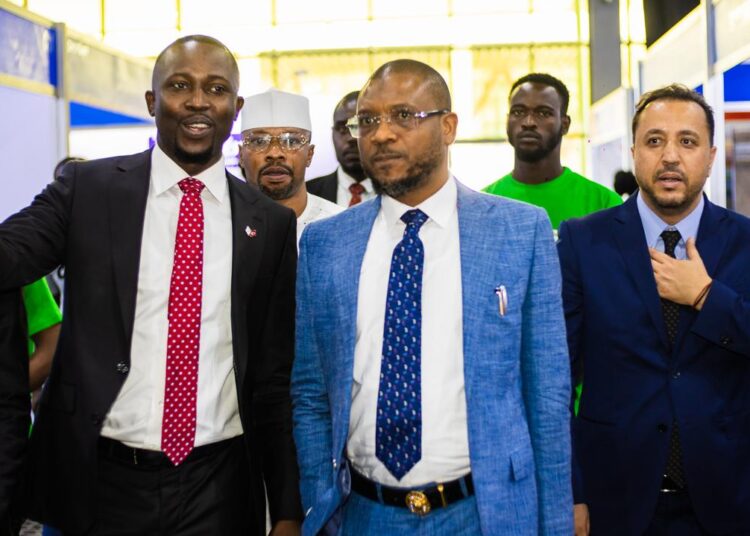The furniture and textile market, a vital component of many economies, is undergoing an exciting transformation in Nigeria.
Recent insights from stakeholders at the ongoing Nigeria Decor Expo 2024 holding at Landmark Centre, Lagos suggest that this sector, currently valued at $2 billion, is on the brink of significant growth—projected to exceed $6 billion within the next three years.
As the global economy evolves, Nigeria finds itself at the crossroads of opportunity with Turkiye—a country recognized for its robust textile exports.
According to Martins Arebun, President of the MEEI Program, the trade volume between Turkiye and Nigeria surpassed $40 billion in 2023, with the furniture and textile sectors accounting for a significant share.
He added that Turkiye’s position as one of the top exporters of textiles—responsible for over 3.5 percent of global exports—presents a unique advantage for Nigeria, especially given its strengths in cotton and wool production alongside countries like South Africa and Ethiopia.
Emerging economic dynamics highlight the increasing demand for quality furniture and textiles. With urbanization on the rise and the real estate market expanding, there is a growing appetite for home furnishings that reflect both modern lifestyles and cultural heritage.
Local artisans are stepping up to meet these demands, crafting pieces that resonate with Nigeria’s rich traditions while incorporating contemporary designs.
For such promising projections to materialize, effective policy-making becomes paramount. Shina Peller, former lawmaker and entrepreneur, highlighted the necessity for cohesive policies that foster development within the furniture and textile sectors.
According to him, policies must be designed not only to support local manufacturers but also to attract investments, stimulate production, and guarantee fair competition.
Peller added that the commendable restriction on the importation of furniture and textile products during former President Buhari’s administration showcased a proactive approach to nurturing local industries.
He stressed that creating a conducive business environment is essential, allowing new entrants to thrive and established players to expand their operations while ensuring quality standards that benefit consumers.
Dr. Daniel Deji Ayodele, founder of MEEI, echoed this sentiment, affirming that policies should incentivize innovation, reinforce standards, and embrace good business etiquette.
Ayodele argued that by establishing a regulatory framework that encourages creativity and craftsmanship, Nigeria can capitalize on its natural resources and cultural richness, elevating its position in the global market.
Also, Decor Expo Exhibition Director, Mohammed Ali Aras, noted that Innovation plays a crucial role in driving growth in the furniture and textile sectors.
Aras added that as global trends shift towards sustainability and eco-friendliness, Nigeria and Turkiye have the chance to lead by introducing innovative practices in production and design. This includes embracing technology in manufacturing processes, utilizing sustainable materials, and promoting ethical sourcing practices.
Moreover, the President of Lagos Chamber of Commerce and Industry, Gabriel Idahosa, explained that adherence to high standards is imperative for competitiveness.
He stated further that establishing benchmarks within the Nigerian furniture and textile markets will not only ensure quality but also enhance the credibility of local products in international markets.
In closing, Nigeria’s partnership with Turkiye presents a unique opportunity for substantial growth in its furniture and textile market.

















